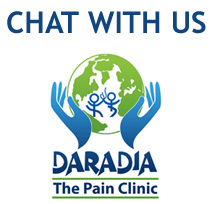Guyon’s Canal Syndrome: What you need to know
Guyon’s Canal Syndrome: What you need to know
What is Guyon’s Canal Syndrome?
Guyon’s canal syndrome is a condition that causes pain, tingling, and numbness in certain hand areas. The Guyon canal is a tunnel in the wrist through which the ulnar nerve (one of three nerves supplying the hand) and the ulnar artery pass to enter into the hand. As a result, Guyon canal syndrome is also known as ulnar tunnel syndrome.
What are the causes of Guyon’s canal syndrome?
The most common cause of Guyon’s canal syndrome is a ganglion cyst. It is a fluid-filled growth that develops on the wrist and compresses the nerve. Tumors and anatomical abnormalities also cause this disorder. Certain factors that increase the risk of getting Guyon’s canal syndrome include:
- Cycling and weightlifting
- Injury or blunt trauma of the wrist that causes wrist bone fractures or dislocations
- Repetitive activities that put pressure on the wrist
- Occupations or activities involving the use of vibrating tools
What are the symptoms of Guyon’s canal syndrome?
If you have Guyon’s canal syndrome, you may experience the following symptoms:
- Pain in hand on the little finger side
- Numbness and tingling in the little and the ring finger
- Weakness in the hand
- Difficulty performing daily activities
- Difficulty gripping or pinching
The symptoms take time to develop as well as worsen over time.
How to diagnose Guyon’s canal syndrome?
The diagnosis of Guyon’s canal syndrome is based on the following:
- Symptoms such as tingling and numbness
- Medical history of occupation, past activities, and past injury to look for clues that help identify the cause.
- Physical examination of the wrist helps the doctor locate the ganglion cyst. He will also check your elbow and hand and ask you to perform specific hand movements.
- Imaging tests to check for bone fractures, dislocation, other wrist injuries and help rule out other possible conditions such as arthritis. Imaging tests include X-rays, MRIs, CT scans, and ultrasound.
- Ultrasound examination of the ulnar nerve may show thickening of nerve.
What is the prognosis of Guyon’s canal syndrome?
Guyon’s canal syndrome has a good prognosis. The pain and other symptoms respond well to available non-surgical treatment options, and they alleviate the symptoms in most cases.
What are the treatments of Guyon’s canal syndrome?
Your doctor may recommend the following treatments:
- Surgery since the ganglion cyst causes most cases of Guyon’s canal syndrome. The cyst is removed, and the nerve compression is relieved.
- Over-the-counter pain and anti-inflammatory medications to help relieve pain and inflammation. If pain is not responding to these medications, the doctor may recommend a steroid injection.
- Reducing and modifying activities that compress the nerve and cause the symptoms. You may also need to wear wrist splints or braces for some time.
- Physical therapy to relieve symptoms and decrease hand weakness.
- Ultrasound guided hydrodissection of nerve with or without steroid injection gives very good results


